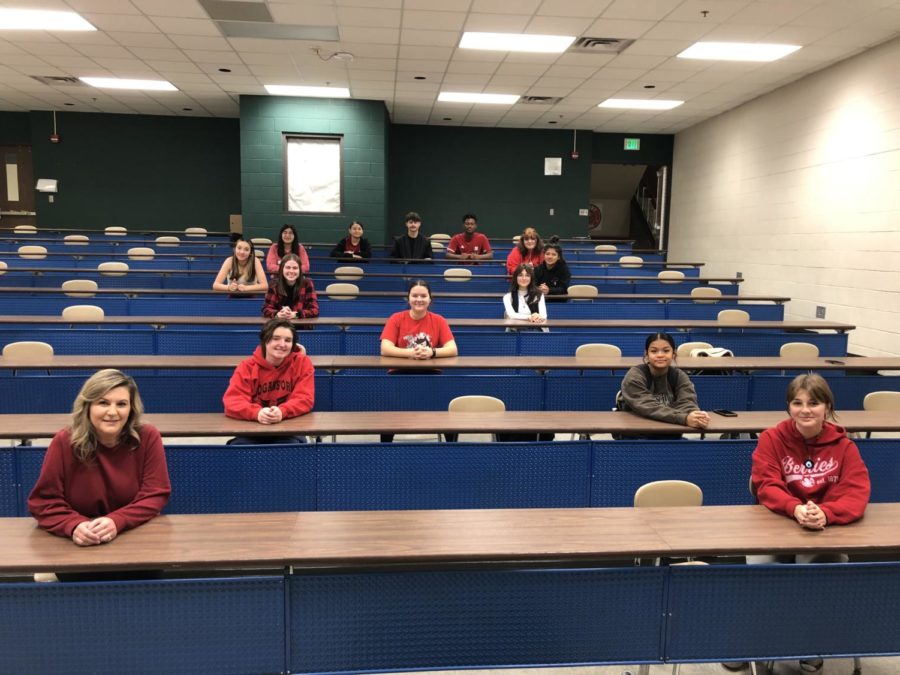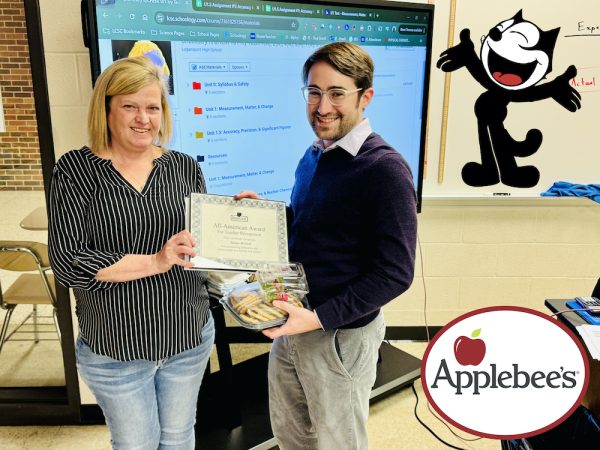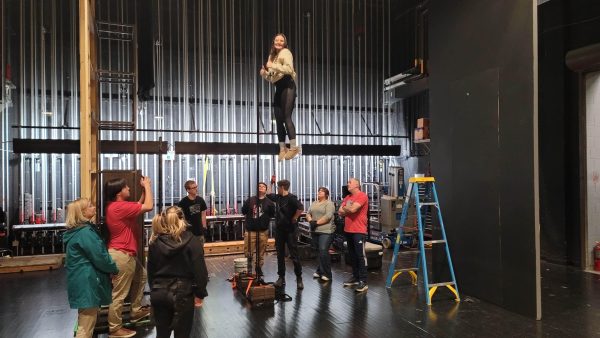S.A.D.D. Club Fights Destructive Decisions
Members of the S.A.D.D. Club smile at their meeting during Ribbon Week this year. Red Ribbon Week is a week in the prevention about the use of drugs and alcohol.
S.A.D.D. Club, a branch of Students Against Destructive Decisions, is a school organization against destructive decisions. According to the official website, their mission is to empower and mobilize students and adult allies to engage in positive change through leadership and intelligent decision-making. Some destructive decisions that they’re against are underage drinking, drug use, risky and impaired driving, teen violence and suicide.
“I honestly don’t know the most destructive decision a student can make,” sophomore Valeria Cortes said. “I think anything that can harm a student is awful.”
Teens today often struggle with mental health and don’t receive the help they need. Organizations like S.A.D.D. can help people get the assistance they need to get through their problems and addictions that minors can fall into, creating dangerous outcomes from the result of their destructive coping mechanisms. S.A.D.D. creates programs and assemblies to educate teens on topics that aren’t discussed in school on a daily basis.
“It has helped me see that there are things out there to help students,” Cortes said. “I joined because I wanted to be a part of something that helps others.”
S.A.D.D. generally isn’t as known because of its more popular counterpart, Sources of Strengths. Though, both work in unity as they do similar things to better the community.
According to Psychology Today, one in every five children grow up in a household with a parent abusing substances. Children within these households are also three times more likely to develop trauma compared to a child that doesn’t have alcoholic/drug-abusive parents. This trauma can be things like sexual abuse, neglect, or physical abuse. Abuse in households can lead to a domino effect even if only one person commits these dysfunctional behaviors. Families can end up having strained relationships and financial hardship due to these behaviors. If there are siblings in the household, it can lead them to be exposed as well as being hooked on it too. Underage drinking or drug abuse can decrease performance in school which can result in poor grades or possibly suspension if caught.
“Just this weekend, we met with a couple of students,” counselor Sherry Harris said. “I had three students show up at Revolution with someone who wants to train kids in a program. So, I have students in the group who want to help and do things in the community. So, that’s what’s cool about it; I can help those students do what they want to do in the community because it’s really all about what students want to do, how they want to make a difference. So, it’s cool helping those students have a voice. That’s what I like about it. We have a lot of great students who want to make a difference, who want to do things, who want to change things.”
The club generally has to deal with a lot of issues in the community. Everyone needs to have the opportunity to be helped, and that’s where S.A.D.D. comes in. The club tries to spread positivity throughout as well as volunteers for the community. They try their best by attending different meetings and decorating for things such as Suicide Prevention Month.
“Destructive decisions can be different for everyone,” Harris said. “You know, it can be social issues, mental health-related. It can be related to a lot of different things.”
Your donation will support the student journalists of Logansport High School. Your contribution will allow us to purchase equipment and cover our annual website hosting costs.

It's freshman Dominique Zamora-Arias's first year on Magpie. They like to write sometimes. Dominique likes to listen to music and hang out with friends....










